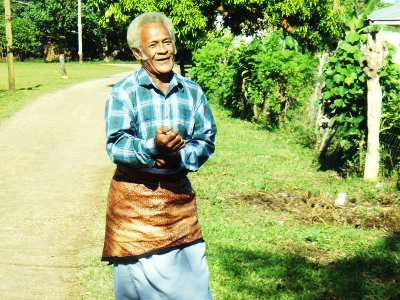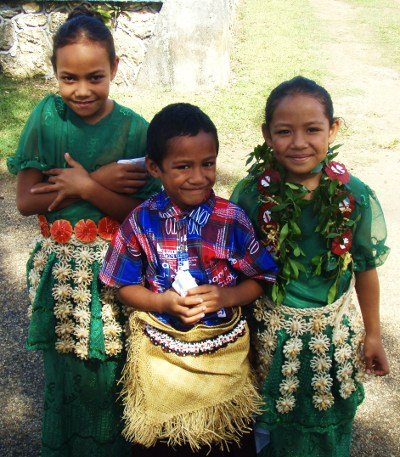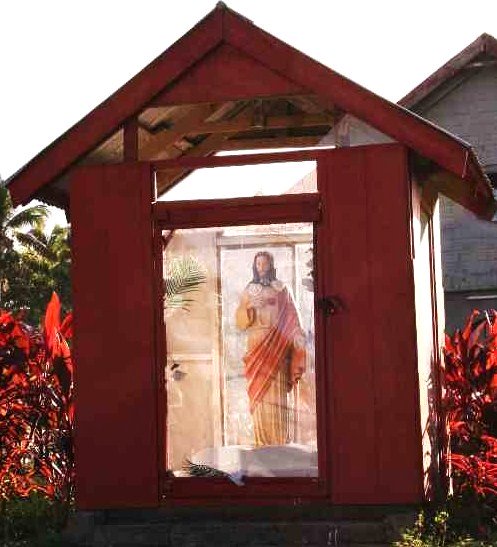Tongan Culture
Tongan culture is as important to Tonga now as it ever has been, and If you are planning to visit the Kingdom of Tonga / 'Eua island, learning a little about the culture, will allow you to get the most out of your visit to the Kingdom.
If you can understand a little of why Tongans are the way they are and learn a little about there background then your visit to the Kingdom of Tonga will be that little bit richer.
Luckily the Tongan culture is still very much in tacked and you will see people wearing woven mats, making Tapa cloth cooking in the ground and roasting pigs on the spit.
|
Registry Cleaner Download Easy Registy Fix & Better Pc Speed Recommended and Used By The Experts! Does your PC run more and more slowly? Are you annoyed by the ads when you are surfing the Internet? Do you get the ActiveX or similar 'Unable to load' .dll errors? |
Life in Tonga is pretty much the same as it has been for hundreds of years, yes we have cars, flushing toilets (well some of us do) and the internet, but as you will see coming to the Kingdom is like stepping back in time especially in the outer islands like 'Eua island or Ha'apai. |

The Tongan culture is proud, conservative and in-grained into ever Tongan on the islands.
Tongans live feudal lives, subsistence farming is still the main stay of most of the Kingdoms people and very much the case on 'Eua island.

Rank
|
Save 80% To 100% On Your Next Vacation - Guaranteed. Learn How To Travel The World And Have Incredible Adventures, And Pay Just A Fraction Of The Regular Prices On Airline Tickets, Vacation Packages, Hotel Rooms, Cruises And More |
Rank is fundamental to Tongan culture. No two people have equal rank, they may have to go back a few generations to determine their status. This determines how they will interact with one and other and is extremely important. |
Rank also determines responsibilities for example the younger son will spend a lot of time in the plantation, where as the oldest son being of higher rank will get more opportunities in the Tongan culture.
Here is an overview of the ranking system :
- Members of the royalty are the highest ranked ( They have their own language )
- Nobles are the next highest ( Also have their own language)
- The commoners are the lowest ranked of the three tiered class system
Men are ranked higher than woman, but within the family the sisters are ranked higher than the brothers.
The fathers side of the family are ranked higher than the mothers side.
And the older you are the higher you are ranked.
Tongans show respect to the higher ranks in a number of ways, by keeping there heads lower, differing there eyes, not speaking and commoners never walk in front of royalty or nobles.

Talking Chiefs
in Tongan culture, talking chiefs are people who represent others at ceremonies. The official talking chiefs are chosen by the royal family or the nobles, they represent them speak for them in ceremonies and such like. The person represented does not speak the talking chief speaks for them, they welcome guests, they take the gifts given to the chiefs they represent for them and decide how to distribute them.
Again the royals and nobles use the talking chief as a show of rank being as they are far to high in the ranking system to talk on some occasions.
Villages have a talking chief and each family has a talking chief who is their spokesman.
It is quite common for a member of another village when entering a different village to introduces him or herself by the name of the talking chief of his village, not his own name.
Tongans think rarely of themselves as (I) but they think of there whole village as themselves.

Land
In Tongan culture Land is owned only by the king, government, or the nobles. Tongans who live on land owned by the King or the nobility pay no tax for the land but will give goods to the land owner in times on funerals, weddings, birthdays and such. People who live on government land pay a property tax.
Land is passed down the generations through the eldest son, who then can gift the land to some of his younger sibling.
The eldest son would normally receive about eight acres as a bush ( plantation ) allotment, with which to feed his family.
Land cannot be sold in Tonga, it can however be given away and if for example the person you are giving it to, happens to give you a gift in return, money for example, well so be it.

Possessions
Possessions in the Tongan culture are shared, the thought of this is mine and that is yours is non existent in the minds of a Tongan.
This dates back to the time when there was no refrigeration on the islands and wealth was measured by the amount of food one had. So if wealth is food and food spoils without refrigeration then it goes that wealth (food) must be shared before it spoils.It would be very rude for a Tongan not to offer food to anyone that passes by.
In fact Tongans had their kitchens by the road side so that they could give food to people as they passed by.
Now as time went on to the now present Tongans attitude to possessions stayed the same. For example you my walk up to a Tongan and say quite innocently, I like the hat you are wearing today and nine times out of ten the Tongan will just insist that you have it.
Of course now that we use money in Tonga, and money was not part of the Tongan traditional culture, Tongans have not learnt the western ways of managing it. It is hard for the average Tongan to keep up with people from overseas who have stated business here. For example a person from overseas that owns a shop will bank his profit at the end of the week, where as the Tongan who's family have come to the shop and asked for goods which of course have been freely given, will take his profit (if he has one) and give it to family, church and pretty much anyone else that asks for it.
Which approach to possessions is the right one is up for debate, but the fact is the overseas approach takes a lot more energy to keep up with the who owns what than the more relaxed approach of the Tongan way.

Tongan Time
Tonga has it's own approach to time. Today may mean tomorrow and half an hour maybe more like two hours or in some cases two days or even a week.
For the traveler this may take a bit of adjusting to, but remember you are on holiday so just relax and go with it.
Big occasions like a street festival maybe changed from lets say Monday the 14th to Tuesday the 15th just on the 13th without much consultation and although you may not know that the times have changed the rest of the Kingdom does, I like to call this the coconut grape vine. So the village meeting that was said to start at 7 o'clock may in fact start at 8:30 and you maybe there at 7 but everyone else will be there at around 8:30. (9 o,clock)
Time in Tonga is not very important at all, people are important, food is important but time is not.
Tongan Religion
The Christian missionaries in the 1800s introduced Christianity to the Tongan islands and here it has stayed as the dominant religion. That is not to say that it took anything away from the Tongan culture, as it was just tacked on to the culture.
Tongans did of course get rid of there believes in the old Tongan gods in favour of the Christian one God, but still the old superstitions remain intact. For example if a Tongan is to take land that was not his then bad things would happen to him spiritually, he may be visited by sprites that could do him harm, just as a reference any ghost, sprit or dead being that walks the earth is referred to as the tevolo said deivlo.
Now this doesn't mean it's the devil just that it's a ghost or sprit. If you get sick or a volcano erupts and destroys your island it is still because God is angry and is punishing them for evil deeds.
Christianity freed the Tongan people from human sacrifice made to appease there old gods and gave commoners the right to go to heaven, where this right was only able to be had by Kings and high ranking chiefs before it's introduction.

Sunday Law
Sunday law in Tonga is a result of Christianity and has it's own twist. It is against the law to play, work, swim, garden and do your washing on a Sunday unless you are a tourist or in a tourist establishment.
This is quite a nice idea as it enforces people to take some time off and relax. Of course when I say relax I mean go to church, eat, and sleep as this is about the only three things you are allowed to do in Tonga on a Sunday.
The Family
In Tongan language the word for sibling is the same as cousin and rightly so as immediate family includes up to your third cousin at least. Your mother is also your mothers sisters and father include your uncles.
So if you were a Tongan your father would not just be the father that gave birth to you but also his brothers as well. Your mother is not just your birth mother, but her sisters as well and your mothers brothers are your uncles and your fathers sisters are your uncles.
In Tonga all your mothers and fathers are called by there first name, it is rare for a child to call there parents Mum or Dad, in fact it is so rare that I am not sure why I mentioned it in the first place.
As for who will raise the child usually it is the biological mother and father although it is not unusual for the child to be raise by the fathers brothers family or the mothers sisters family either.
Felling confused yet well this is just the start.
If the father is a Tongan and the mother is a non Tongan then the child would be a Tongan, however if the mother is a Tongan and the father is a non Tongan then the child will be a non Tongan.
Sisters And Brothers
Sisters are higher ranked than brothers in Tonga.
Sisters and brothers are not allowed to be together if anything to do with sex is to be disused, watched or read. This includes movies with kissing.
Most boys will have there own bed room outside the house, if they have sisters.
Bothers and sisters are not allowed in each others bedrooms.
Head Of The Family (‘Ulumotu’a)
The head of the family is called the 'Ulumotu'a. This role is inherited to the eldest male line.
He's role in the family is to, officiates at family activities, funerals, weddings and special events.
The 'Ulumotu'a has the final say on these events when it comes to his family.
He organizes gifts from the family to funerals and gifts received from funerals of a family member is distributed by him.
Highest Ranked Female Of The Family
The highest ranked female of the family is the fathers eldest sister or the grandfathers sister if she is still alive. Most families go back three generations to determine the highest ranking female of the families.
Explore world cultures today
Culture Briefings gives you current, in-depth information found in no other single source on the customs, culture, traditions and ways of life of people in cultures around the world. In today's increasingly smaller world, understanding the ways of the world's other peoples is an essential skill. And the Geotravel Research Center's Culture Briefings will help you develop that expertise.
Tao of Tai Chi .Com
A great site if you have thought about trying tai chi for exercise. If your idea of a healthy body includes pain free flexible joints and think you maybe able to have this though the tai chi movements then this maybe what you are looking for. This site's tai chi how to page is a great place to start for the beginner. Chinese culture and Tai Chi go hand and hand.
Click For More Information On Tapa